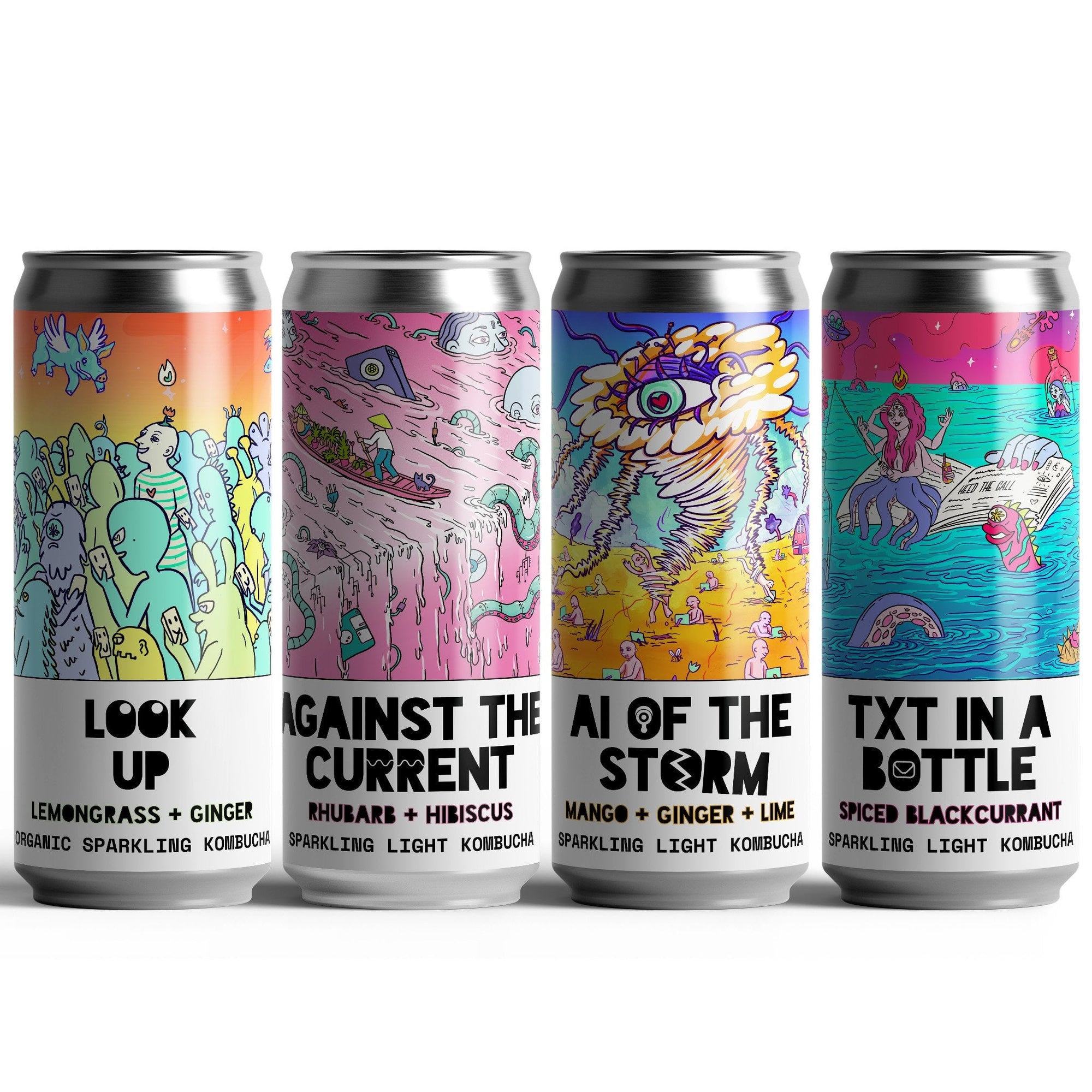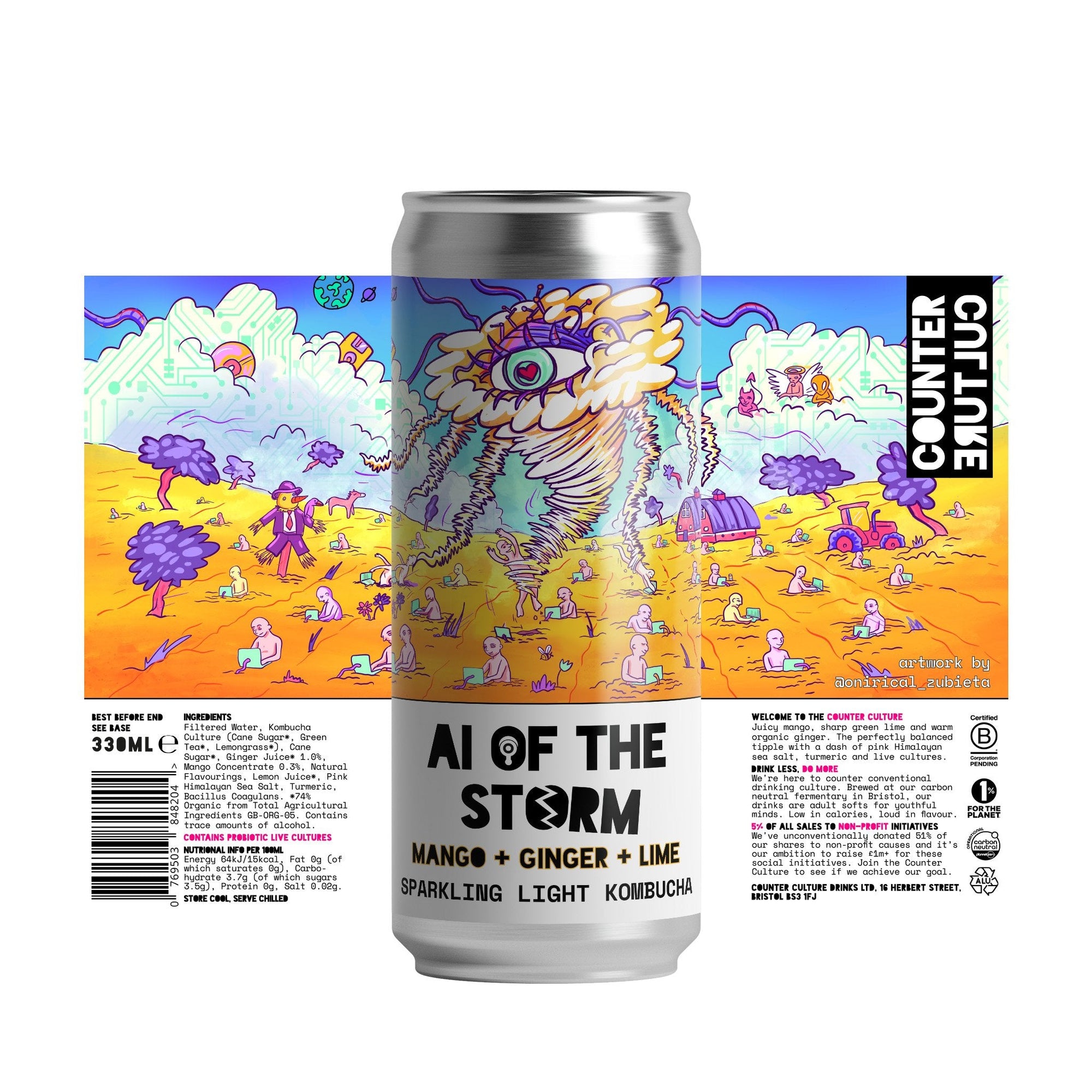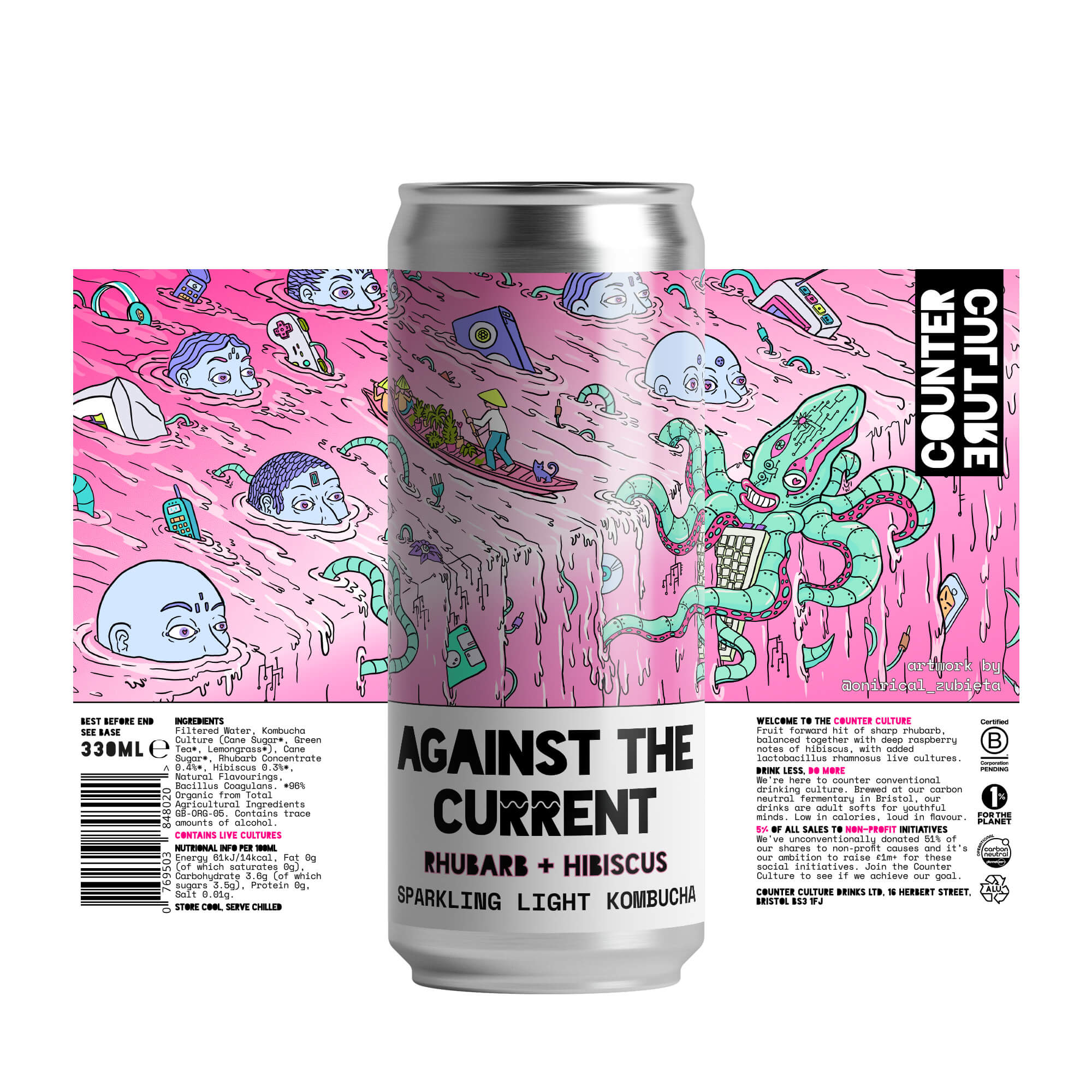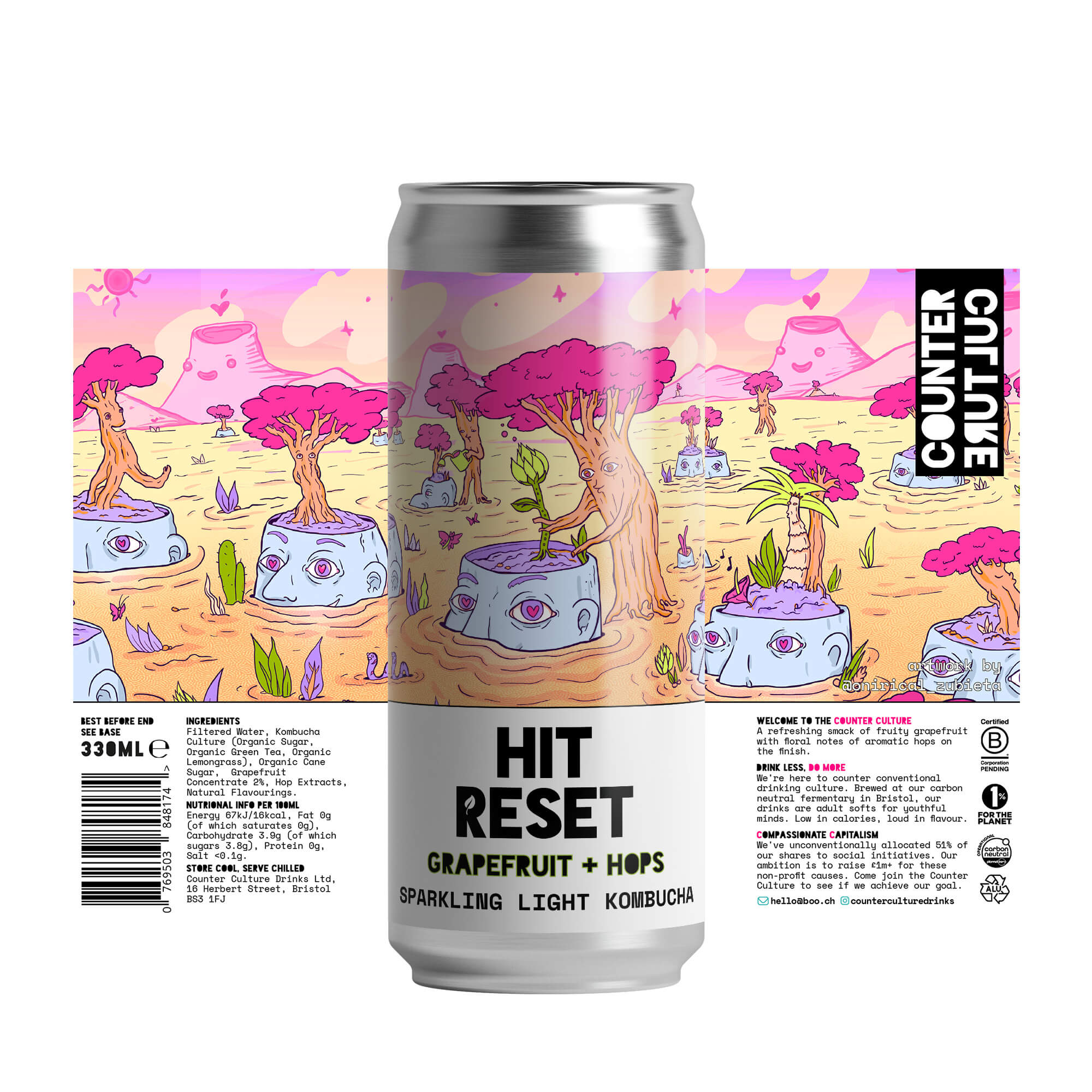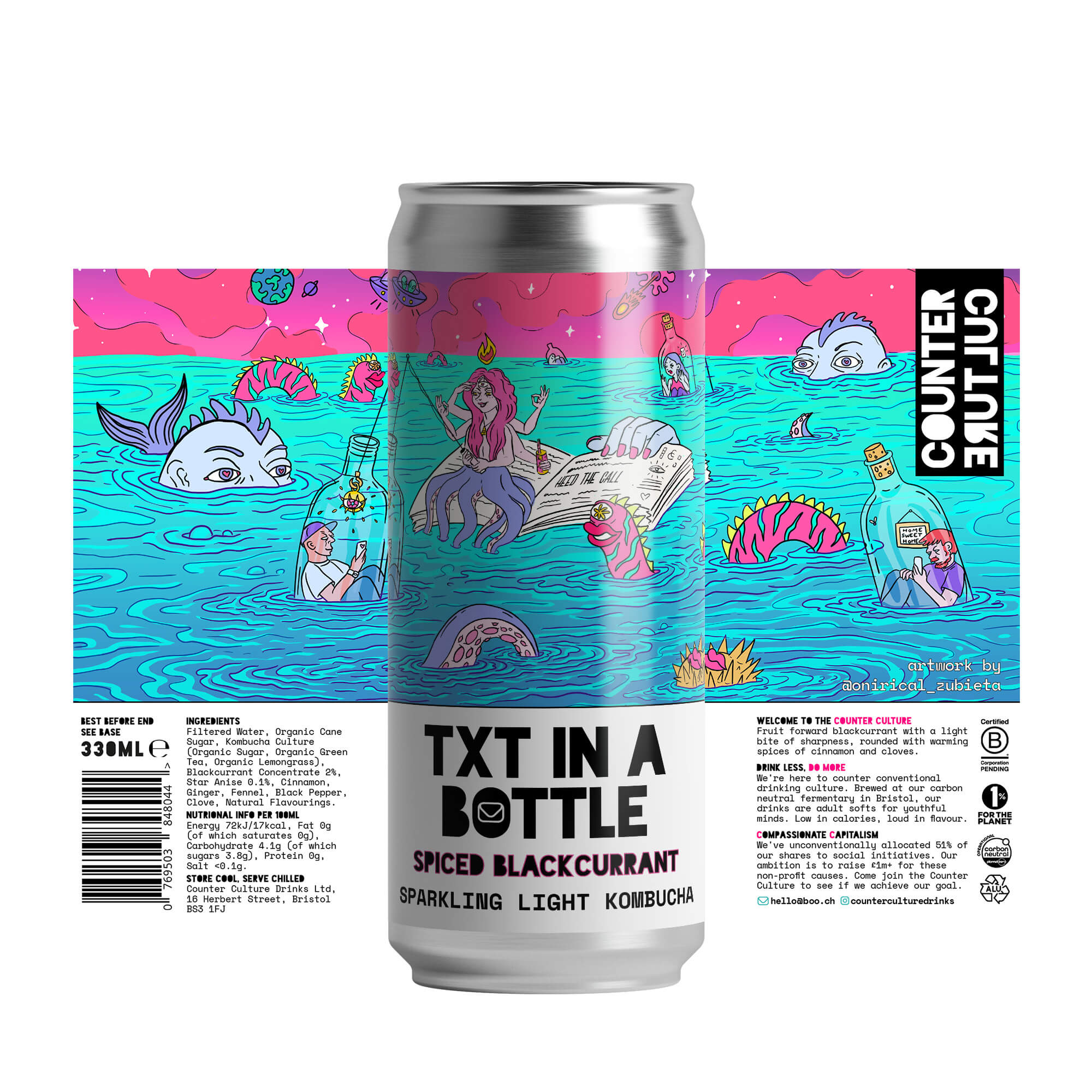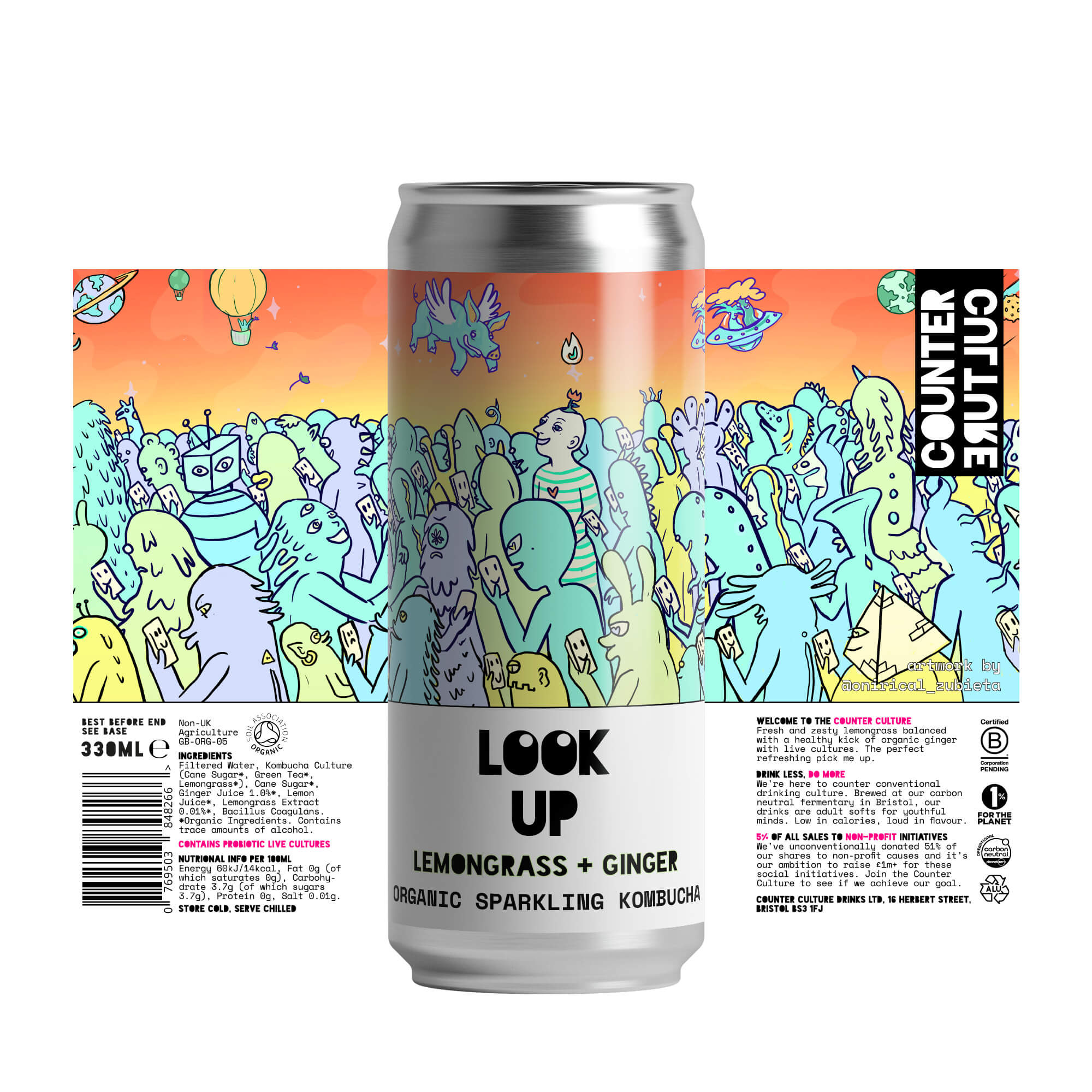Is kombucha halal?
When it comes to kombucha, the fizzy, fermented tea that's been on everyone's lips (literally), there's a question that bubbles up for many: Is kombucha halal? This question isn't just a matter of curiosity; it's crucial for those following a halal diet for religious reasons.
So, let's dive into the effervescent world of kombucha and explore whether this trendy beverage fits into a halal lifestyle.
The Basics of Kombucha
Before we can answer the halal question, let's get a quick refresher on what kombucha actually is. Kombucha is a fermented drink made from sweetened tea and a symbiotic culture of bacteria and yeast (SCOBY). This combo kicks off a process that transforms the fermenting tea into a tangy, slightly effervescent drink with a unique taste.
Kombucha's ingredient list is pretty straightforward: tea, sugar, water, and the SCOBY. The fermentation process, however, adds a few more characters to the mix, including various organic acids, trace levels of alcohol, and a bunch of probiotics. It's this fermentation process that's key to understanding kombucha's halal status.
Fermentation and Alcohol Content
Yes, you read that right: alcohol. The tea fermentation naturally produces some alcohol in kombucha, though typically in very low amounts. But how much alcohol, and does this affect whether kombucha is considered halal? We'll get to that in a moment.
Understanding Halal
To tackle the question of whether kombucha is halal, we first need a quick primer on what halal means. In Islam, halal refers to what is permissible or lawful to consume according to Islamic law. This includes not only the type of food but also how it's prepared and processed.
Alcoholic Drinks and Halal
Alcohol is a major no-no in a halal diet. Consuming alcoholic drinks is explicitly prohibited in Islam. However, the presence of alcohol isn't always a straightforward matter. Naturally occurring alcohol can be found in many fermented foods and beverages, albeit in tiny amounts. The key question is: At what point does the presence of alcohol make a product haram (forbidden)?
The Halal Certification Process
For a product to be certified halal, it must go through a rigorous examination by a halal certification body. This includes analysing the ingredients, the manufacturing process, and even the packaging. It's a thorough process designed to ensure that the product meets all halal dietary laws.
Interpretations of Halal Laws
Halal laws can sometimes be subject to interpretation based on different schools of thought within Islam. While the core principles remain consistent, there can be variations in how certain aspects are applied. This can lead to differing opinions on what is considered halal or considered haram in specific cases, such as the alcohol content in kombucha.
Is Kombucha Halal?
Now, back to our bubbly question: Is kombucha halal? The answer isn't as clear-cut as we might like. It depends on several factors, including the alcohol content, how the kombucha is made, and who you ask.
As mentioned, kombucha naturally contains some alcohol due to fermentation. Commercial kombucha is typically formulated to contain less than 0.5% alcohol by volume, a level that's generally considered non-intoxicating. However, homemade kombucha can vary widely in its alcohol content, depending on how it's brewed.
Some Islamic scholars argue that any beverage containing any amount of alcohol is haram, while others suggest that non-intoxicating levels (like those found in commercial kombucha) are permissible. The interpretation can vary.
Commercial vs. Homemade Kombucha
Commercial kombucha, with its own fermentation processes and controlled alcohol content, might be considered halal by some standards, especially if it's certified by a halal certification body. Homemade kombucha, on the other hand, is a bit of a wild card. Without precise control over the fermentation process, it's harder to guarantee that the alcohol content remains at a non-intoxicating level.

Halal Certification for Kombucha
Some kombucha brands have sought halal certification, providing a clear answer for those wondering if their kombucha is halal. These products have been vetted to ensure they meet all the requirements of a halal diet, including low enough alcohol levels to be considered non-intoxicating.
Community Perspectives on Kombucha
Within Muslim communities, there can be diverse opinions on whether kombucha is halal. Some individuals may choose to avoid it altogether due to the alcohol content, while others may feel comfortable consuming commercial varieties that meet halal standards. It's important to consider these varying viewpoints when making dietary choices.
Conclusion
So, is drinking kombucha halal? It's a question with a nuanced answer. For those strictly adhering to a halal diet, seeking out halal-certified kombucha is the safest bet. This ensures that the drink complies with Islamic dietary laws, including the stipulation on alcohol content. As always, if in doubt, consult a knowledgeable source or authority within your community.
Whether you're sipping on a store-bought bottle or brewing your own batch making kombucha at home, understanding the ins and outs of kombucha's halal status can help you make informed decisions that align with your dietary needs and religious beliefs.

